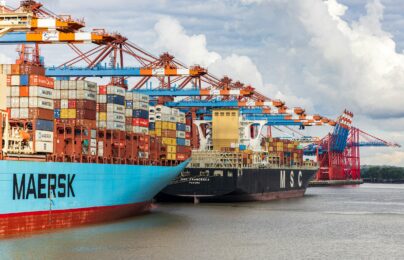
Shell share price: Firm discontinues Arctic exploration as first well disappoints
Royal Dutch Shell Plc (LON:RDSA) has decided to cease exploration activities off the coast of Alaska after the Burger J well brought in disappointing results, the Anglo-Dutch oil major said in a statement today.
The Hague-based company said that it had drilled the well to a depth of 6,800 feet, and while it found indications of carbohydrates, they are “not sufficient to warrant further exploration in the Burger prospect”.
The well is to be sealed and abandoned.
“This is a clearly disappointing exploration outcome for this part of the basin,” said Marvin Odum, director of Shell’s upstream operations in the Americas.
More importantly, however, the company said that it will now cease further exploration activities in offshore Alaska for “the foreseeable future”. The company said the decision reflected not only the disappointing Burger J well results, but also the high costs associated with the project and “the challenging and unpredictable federal regulatory environment in offshore Alaska”.
Shell said it expects to take financial charges as a result of the discontinuation of exploration. While not specifying the extent of the expected impact, the company noted that its Arctic position is worth about $3 billion (£1.97 billion), while it also has about $1.1 billion in “future contractual commitments”. Shell has spent about $7 billion towards its Arctic ambitions to date.
The company will report the financial implications of the decision with its Q3 results, due on October 29.
Shell endured a hail of criticism following its decision to renew exploration activities off the coast of Alaska this summer. Environmentalists and climate change activists staged numerous protests, while even US presidential hopeful Hillary Clinton voiced reservations towards Shell’s Arctic ambitions.
Earlier this month, Odum dubbed the campaign “the most scrutinized, analysed project — oil and gas project – anywhere in the world”, noting that Shell “can’t afford to have a problem”.
The British company said some two weeks ago that even if exploration activities had confirmed major reserves, a final investment decision was unlikely before 2020, while eventual production was slated for “nearer 2030”.
Still, Odum said today that the basin has “many of the key attributes of a major petroleum basin”, and that “for an area equivalent to half the size of the Gulf of Mexico, this basin remains substantially under-explored.”
“Shell continues to see important exploration potential in the basin, and the area is likely to ultimately be of strategic importance to Alaska and the US.”
Greenpeace UK executive director John Sauven said that “big oil has sustained an unmitigated defeat. They had a budget of billions, we had a movement of millions. For three years we faced them down, and the people won.”
“Now President Obama should use his remaining months in office to say that no other oil company will be licenced to drill in the American Arctic.”
Shell shares traded largely in line with the FTSE 100 today, dropping 2.48 percent to 1,513.50p as of 14:57 BST. The firm’s stock dropped some 1.9 percent last week, reaching a six-year low of 1,519.00p on Thursday.
Meanwhile, Shell, in partnership with BHP Billiton, General Electric, Statoil and RWE, among other energy companies, is set to announce the launch an energy advisory group today.
The so-called Energy Transitions Commission will consult governments on how to efficiently transition to greener energy portfolios.
“It is inherently difficult to change from proven development paths to something more fundamentally uncertain, but change we must,” the Commission said in a launch paper seen by Reuters.
The body is backed by “at least two big environmental groups”, the Financial Times reported.
More industry news







